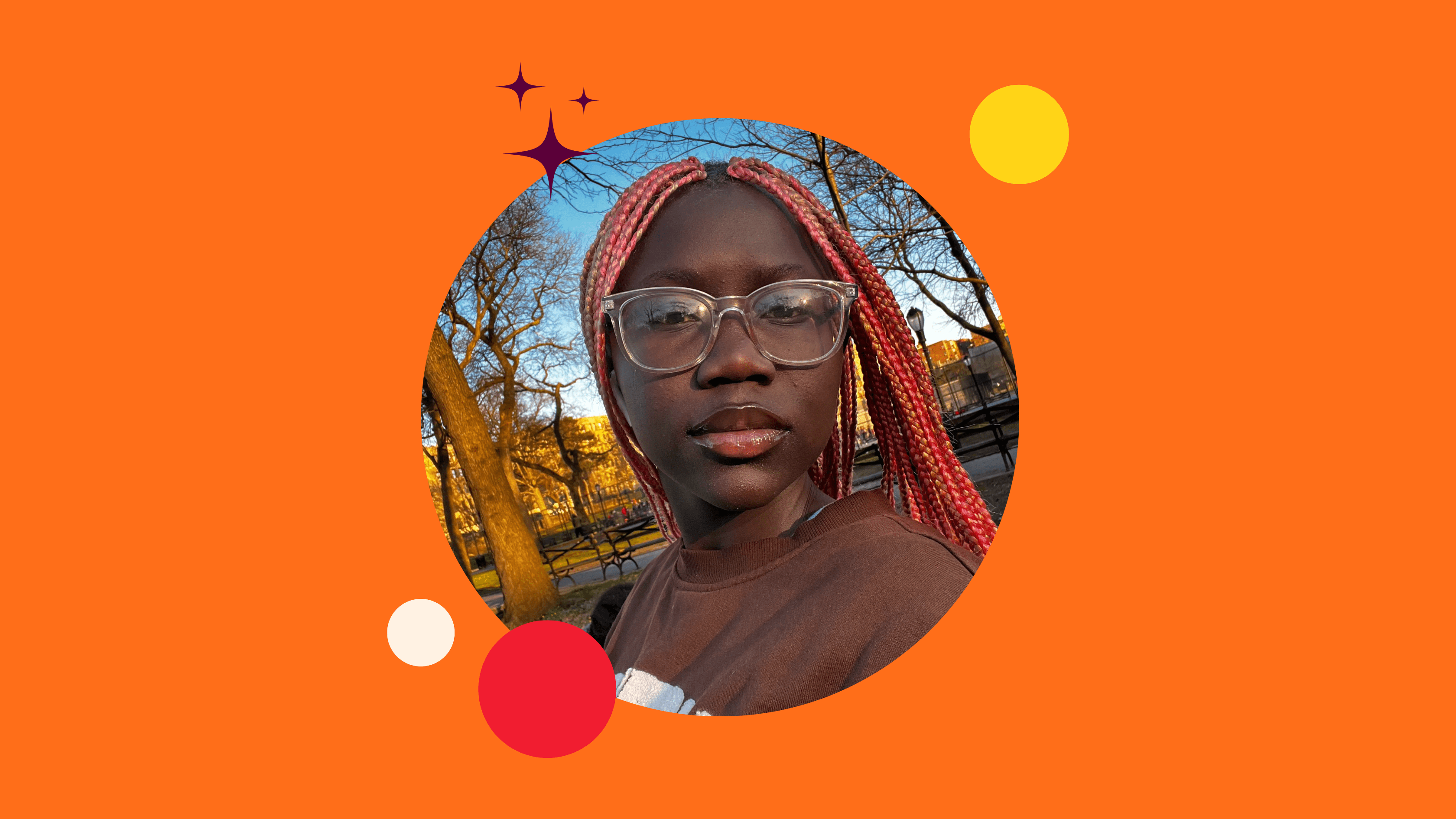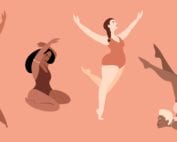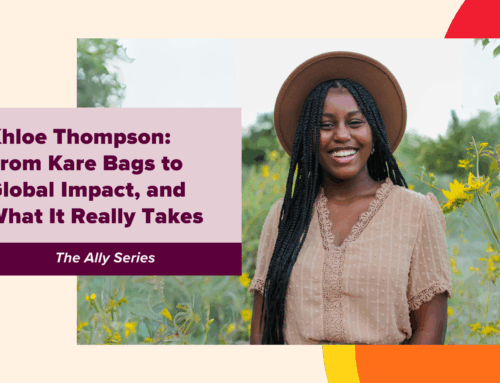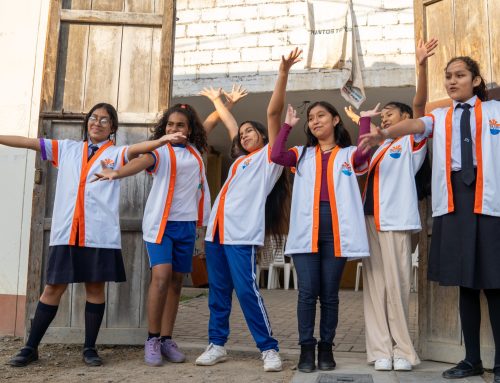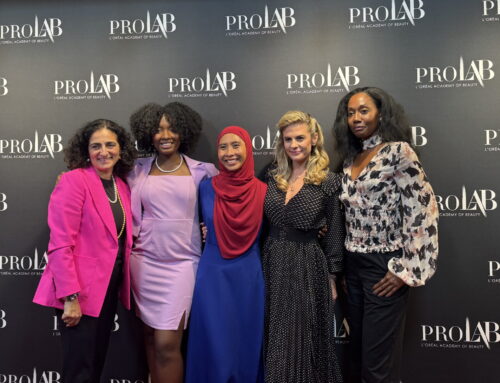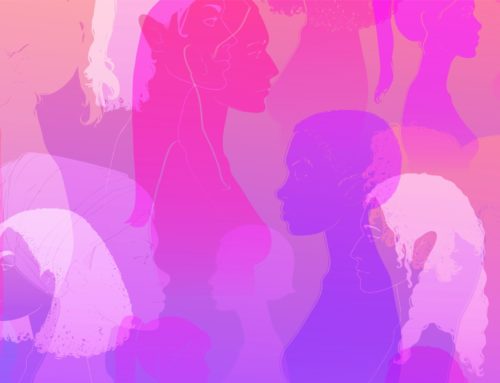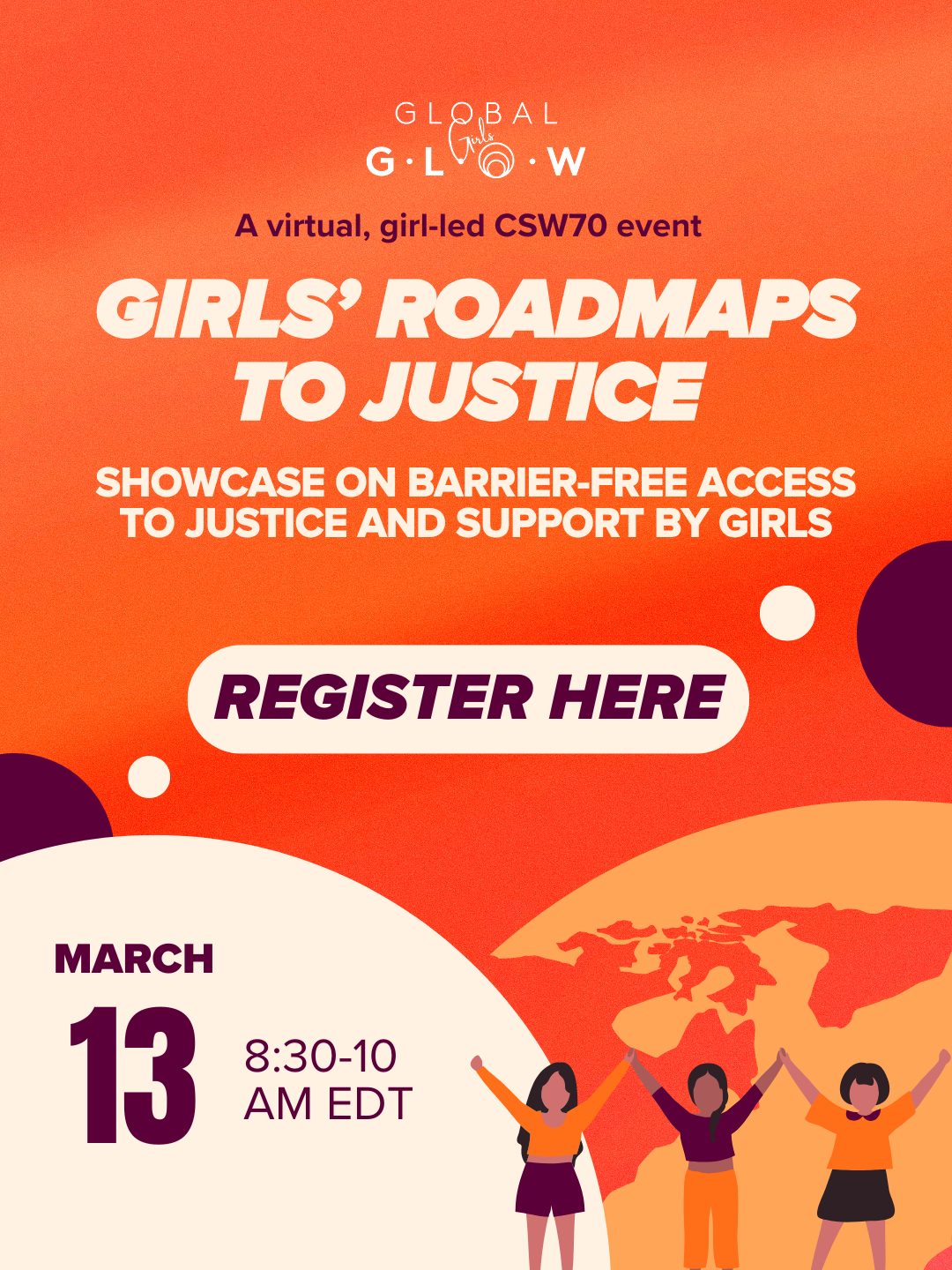From The Gambia to The Bronx, Fatoumata Is Challenging Period Stigma
When it comes to periods, there’s lots to talk about. Unfortunately, shame and stigma surrounding menstruation often halt important conversations about this everyday bodily function for adolescent girls around the world. This Menstrual Hygiene Month, we’re breaking period stigma by highlighting the young women having important conversations about menstruation in their communities.
By forcing young women to feel ashamed of their body, society is making it impossible for them to have the confidence to pursue lives of their own design. What’s worse, teaching young women to feel shame about their periods often leads to discrimination and misinformation, which can have devastating health consequences.

GLOW Club Member Fatoumata growing up in her home country of The Gambia.
Read on to learn how 18-year-old GLOW Club member in The Bronx, Fatoumata, is advocating for girls in the U.S. and her home country of Gambia to feel empowered to speak openly about their periods. Because overcoming social stigma requires all of us to Talk About It. Period.
Fatoumata’s Story: I Moved Across the Globe, But Couldn’t Escape Period Stigma
My name is Fotoumata and I live in The Bronx. I’m in the 12th Grade, and I’m from The Gambia, West Africa. I plan to start making girls feel comfortable talking about their periods.

In The Gambia, periods are looked at as something dirty. Since they’re religious, if a woman is on her period, she can’t pray. And you can’t really talk about menstruation, because it’s supposed to be something sacred. Usually, when girls get their period, you can’t really say it. You can’t, let’s say, get a pad from someone because it’s something that’s kept secret.
In the village where I lived, women usually just use cloth as their pads. It’s not really something they just go to the store and buy. They wash their cloth and reuse it because pads over there are pretty expensive. And the cost has probably gone up since I moved because of inflation. Maybe people in the city could afford it, but in the village, people don’t really have that much money. They can’t buy pads every month, because that money is needed for food and necessities.

My mom used to send me to the store to buy pads, but she usually told me to hide them or not let anybody see them. I was just a child, but I questioned it and didn’t really understand why. I would have to speak to the guy at the store in, like, a secret code. When he just gave them to me, I would put them under my shirt, and when I got home, my mom would hide them somewhere.
I moved to the U.S. when I was 12, and I noticed that there is stigma about periods here, too. At school, you can’t use the bathroom in the first 10 minutes or the last 10 minutes of class. So you only have about 20 minutes to use the bathroom. And sometimes, during those 20 minutes, teachers don’t let you go out because you’re missing out on the lesson. So you have to explain to them that you’re on your period, and some girls don’t feel comfortable doing that.
“My mom used to send me to the store to buy pads, but she usually told me to hide them or not let anybody see them. I was just a child, but I questioned it and didn’t really understand why.”
There are some other African students at my school, and if you ask them for a pad, they’ll be like, “Why you asking it so loud?” What am I supposed to say? It’s not like drug dealing or something!
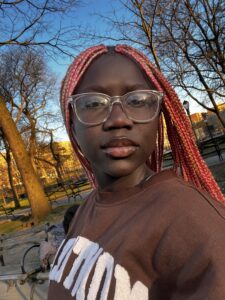
Fatoumata is using her GLOW Club education to advocate for menstrual health.
In GLOW Club, we are open to talk about anything. We talk about periods, taking care of yourself, and, as women, coming together as one and having each other as sisters because at the end of the day, we have each other.
It feels like a community. You have someone to talk to if you need to talk about your body, or your periods. Some of us have a cultural background that makes it difficult to talk about these things. You can’t talk to your grandmother about things like that. They might not be open to it because there’s still a stigma attached to it. Even if they may live in the U.S. now, they still have the same mentality. But talking in club makes you want to open up more.
“Your period isn’t something you should be ashamed of. If you want to make everyone know you’re on your period, let them know.”
GLOW Club really helped with feeling less stigma and having more of a voice. My advice for other girls is to come together as one. Your period isn’t something you should be ashamed of. If you want to make everyone know you’re on your period, let them know.
You can’t be hiding every month because someone doesn’t feel comfortable with what’s going on with your body. It’s your body. You shouldn’t let no one dictate how you feel about it.
You can’t live with society. You have to do what you have to do, and make it your world, not someone else’s. Make it normalized. We all go through it.
Special thanks to Girls Mentor Girls, who operate Global G.L.O.W. programming in safe, small group after-school sessions for Fatoumata and other youth participants with trusted local mentors.
Global G.L.O.W. partners with community-based organizations in 30 countries to operate mentorship-driven programs for girls ages 10-18. Our SEL-based curriculum gives girls the tools to express themselves, advocate for their rights, and challenge the most critical barriers to achieving gender equality.
Support our work at globalgirlsglow.org/donate, and join the fight to end period stigma by downloading our digital toolkit and starting a conversation online.

